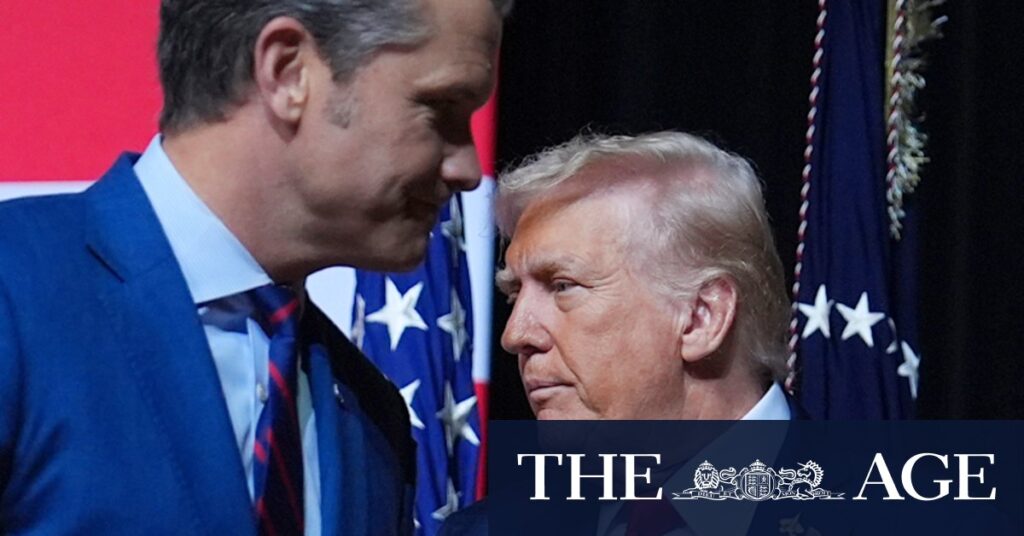
In a charged address to military leaders, former President Donald Trump and Pete Hegseth decried what they described as a “woke” culture permeating the U.S. military. The speech, delivered to a somber audience of generals and admirals, marked a call to return to traditional military values and practices.
Hegseth, speaking on behalf of Trump, declared the end of the Department of Defense era, signaling a shift back to the Department of War. He emphasized the motto, “those who long for peace must prepare for war,” a sentiment echoed by historical figures like George Washington.
Reviving the Warrior Ethos
The speech outlined a vision for a military focused solely on warfighting and preparedness. Hegseth argued that the military’s primary mission should be to ensure peace through strength, a philosophy he claimed was being undermined by current cultural trends.
He criticized pacifism as naive and dangerous, stating that history teaches only those willing to wage war deserve peace. The address highlighted the need for a robust military capable of crushing any adversary, underscoring the importance of maintaining high standards and readiness.
Addressing Military Culture
Hegseth’s remarks took aim at what he described as the “woke” culture within the military. He criticized policies that he claimed promote leaders based on race, gender quotas, and historic firsts rather than merit. He argued that such practices weaken the military’s effectiveness and distract from its core mission.
He called for a return to a “warrior ethos,” emphasizing the need for leaders who are competent, qualified, and committed to the warfighting culture. He cited Eugene Sledge’s World War II memoir, noting the indelible impact of combat and the bravery of comrades as redeeming factors.
Reforming Standards and Leadership
The address outlined several directives aimed at restoring military standards. Hegseth announced that all combat positions would return to the highest male standards, emphasizing the importance of physical fitness and uniformity in standards.
He also called for a review of definitions related to toxic leadership, bullying, and hazing, arguing that enforcing high standards should not be considered toxic. The goal, he said, is to empower leaders to enforce standards without fear of retribution.
Implications of the Address
The speech represents a significant shift in military policy and culture, reflecting a broader political debate over the role of diversity and inclusion in the armed forces. Critics argue that such policies are necessary to create a more inclusive and effective military, while supporters of Hegseth’s vision claim they undermine military readiness.
Experts note that the address aligns with Trump’s broader political agenda, which has often focused on reversing policies perceived as progressive or liberal. The emphasis on military strength and readiness is consistent with Trump’s previous rhetoric and policy decisions during his presidency.
Looking Forward
The directives announced in the speech are expected to have far-reaching implications for the military. The focus on merit-based promotions and high standards could lead to significant changes in leadership and personnel policies.
As the military navigates these changes, the debate over the balance between diversity and effectiveness is likely to continue. The address underscores the ongoing tension between traditional military values and evolving cultural norms.
In closing, Hegseth invoked a prayer for wisdom and protection for military leaders, urging them to embrace the changes and lead with strength and conviction. The speech, while controversial, marks a clear stance on the future direction of the U.S. military under Trump’s influence.







